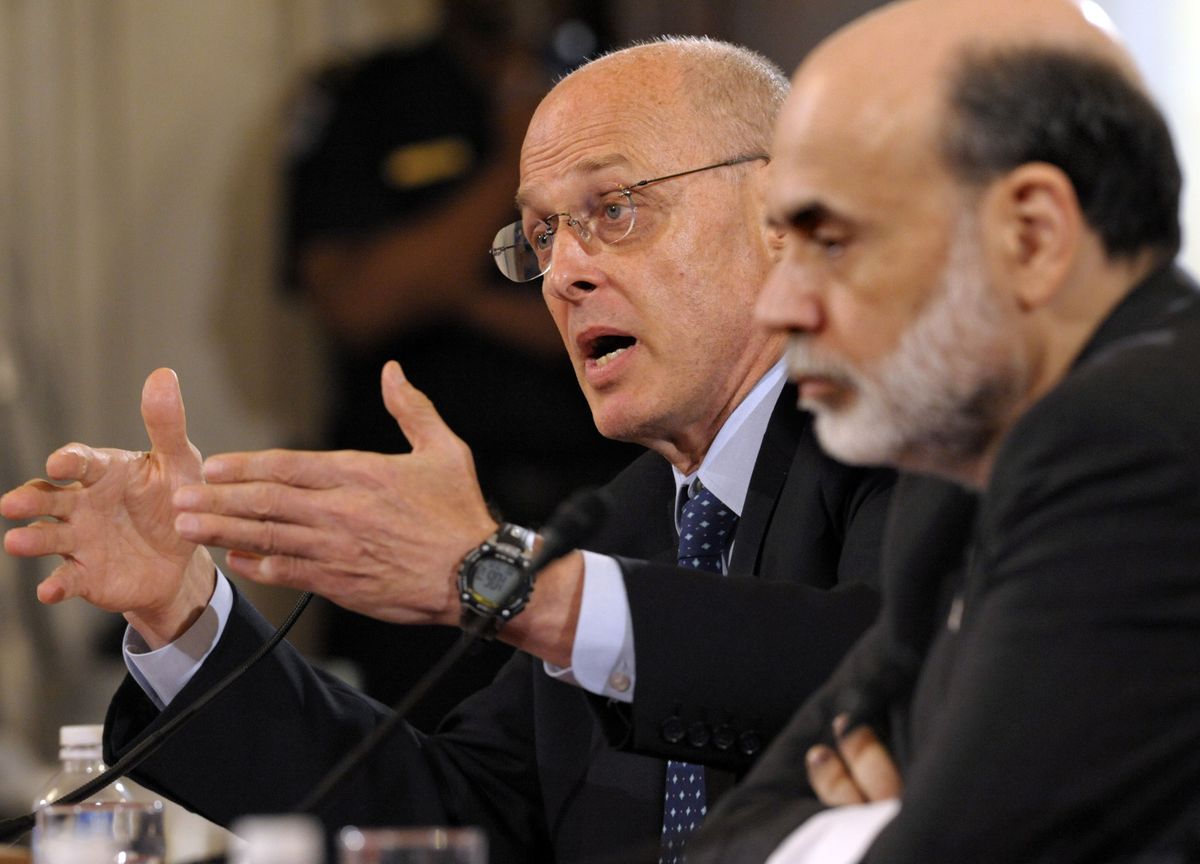Unsettled Economy
Fed: Higher inflation coming

WASHINGTON – The U.S. economic downturn gained steam Tuesday, with a report of the highest inflation since the early 1980s, more bad news for banks and automakers and a suggestion by the Federal Reserve chief that worse days are ahead.
President Bush sought to bolster confidence by declaring that the financial system was “basically sound,” but he conceded: “It’s been a difficult time for many American families.”
The Labor Department said wholesale inflation, driven by skyrocketing gas and food costs, rose by 9.2 percent for the 12 months ending in June – the fastest pace since the summer of 1981, during another energy crunch.
At the same time, consumers hit the brakes hard despite a massive infusion of government stimulus checks. Retail sales turned in their poorest showing in four months.
Federal Reserve Chairman Ben Bernanke delivered a somber midyear outlook to Congress, saying the U.S. faces “numerous difficulties” despite the Fed’s interest rate-cutting campaign, which began last September in hopes of preventing a recession.
Bernanke said the Fed expected the economy to grow for the rest of this year “appreciably below its trend rate.” He cautioned inflation was likely to move “temporarily higher” in the near future.
That puts the Fed in a bind: Rising inflation hamstrings the Fed from cutting interest rates to jump-start the economy. The Fed had already signaled last month the rate cuts were probably at an end.
Outside Washington, there was plenty more bad news:
•On Wall Street, the Dow Jones industrials closed below 11,000 for the first time in two years, and shares of troubled mortgage giants Fannie Mae and Freddie Mac tumbled again. Fannie shed 27.3 percent and Freddie lost 26 percent.
•In Los Angeles, police had to order people lined up outside an IndyMac Bank branch to remain calm or face arrest as they tried to pull out their money on the second day of the failed institution’s federal takeover.
•An analyst downgraded Wachovia Corp. and said the outlook for its shareholders is “bleak.” Its already battered stock sank about 7.7 percent further, to $9.08. U.S. Bancorp posted an 18 percent drop in second-quarter profit and tripled its provision for credit losses.
•General Motors said Tuesday it plans to lay off salaried workers, cut truck production and suspend its stock dividend, all in an effort to raise $15 billion to help turn around its North American operations.
•The dollar hit a new low against the euro.
Even good news came with a dark side: Oil prices fell by more than $6 per barrel – the biggest single-day drop in 17 years – as traders fretted that the slowing U.S. economy would dampen demand for crude.
“The country is in a bad spot right now, squeezed by high and accelerating inflation and a very weak economy and struggling to overcome a very severe financial shock,” said Mark Zandi, chief economist at Moody’s Economy.com.
Wholesale prices for goods before they reach consumers rose by 1.8 percent in June from a year earlier and at 9.2 percent for the 12 months ending in June. Core inflation, which excludes food and energy, was better behaved, rising by just 0.2 percent in June, slightly lower than expected.
Food costs were up 1.5 percent, the biggest increase since January, led by steep gains in the cost of vegetables and eggs. Even pet food jumped by 6 percent, the largest monthly increase on record.
Wholesale energy prices shot up 6 percent. The price of unleaded regular gas surged 9 percent in June on top of a similar increase in May. Home heating oil, natural gas and liquefied petroleum gas also took big jumps.
Retail sales were up just 0.1 percent in June, the worst showing since February. That figure reflected a huge drop in auto sales and would have been even worse had it not been for a big jump in gas sales – reflecting higher prices, not demand.